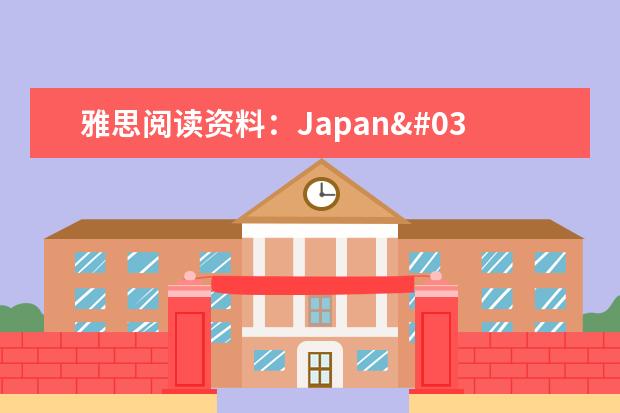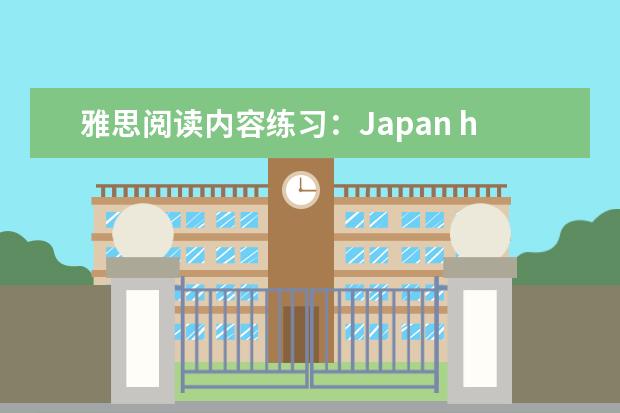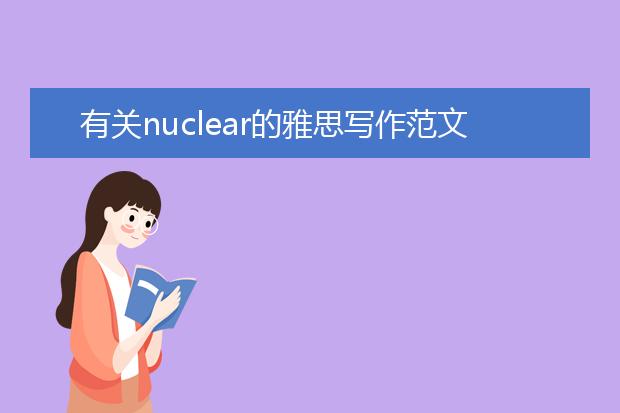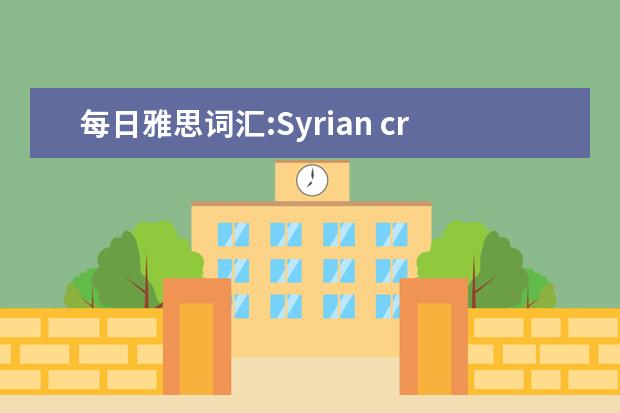当前城市:淄博[切换]
- 手机雅思无忧

扫码登录
雅思考试主要是通过对考生听、说、读、写四个方面英语能力的考核,综合测评考生的英语沟通运用能力,实现“沟通为本”的考试理念。对于雅思考生来说,也有很多考试难点和政策盲区需要帮助解答。今天雅思无忧网小编准备了雅思阅读资料:Japan's nuclear crisis,希望通过文章来解决雅思考生这方面的疑难问题,敬请关注。
Japan earthquake: residents flee as quake fears spread
The railway station at Nasushiobara, the last one still operating near Japan's nuclear crisis area, was jammed with frightened people. In this ghost town of closed shops and offices, pedestrian-free pavements, and empty petrol pumps, the station was the only place still alive, and the only escape route that most had left.
The Tokyo highway a mile to the west was busy, too – but you needed a lot of petrol to get to Tokyo. At the only garage which still had it, there was a five-hour queue. With radiation now leaking from the stricken plant just down the road, there might not be five hours to spare.
From the town and the whole surrounding region, on foot, by bicycle and using the last fuel in their tanks, the people came to the railway station, a river turning into a flood as word spread of just how serious the danger now was.
"I couldn't sleep and I was watching TV," said Noriyuki Fukada, an English teacher. "Then it was announced that there would be a government statement at 6.30. I thought, if the government announces something at 6.30am, it cannot be good."
It wasn't. Radioactive fuel rods in one of the stricken Fukushima nuclear reactors, the official spoke*an admitted, were now "fully exposed", at risk of meltdown, and radiation had escaped into the atmosphere. Ninety per cent of the plant's own staff were evacuated, leaving only a skeleton team fighting off catastrophe. Most serious of all, an explosion the previous day – the plant's third – might have damaged a reactor containment vessel.
The containment vessels are the last barriers between the reactors' cores and the outside world, the very things the government has spent the last several days promising will protect us. A few hours later, the chief cabinet secretary, Yukio Edano, appeared on television.
"Now we are talking about levels [of leakage] that can impact human health. I would like all of you to embrace this information calmly," he said. But the beads of sweat were clearly visible on his own brow.
By that point, however, I, and a good part of the population of the district around Koriyama, the major town closest to the stricken plant, were getting out. Mr Edano was telling us to stay indoors and keep our windows closed. But old habits of deference to authority were breaking down after days of conflicting and partial information, evacuations and evasions. Many were taking matters into their own hands.
Koriyama's own station has been closed for days, but the word was that there were still a few trains, for the moment, at Nasushiobara, 25 miles away. In another humbling example of Japanese kindness and hospitality, the family I stayed with on Monday night decided to use some of their precious petrol to drive me there – and would accept no payment. We joined a line of cars heading south.
Arriving at the station, it was a vast relief to see the long white snout of a bullet train. Japan's reputation in nuclear matters might have taken a knock, but at least they can lay on a fast getaway vehicle.
Inside the booking hall, there was Japanese-style panic – whose symptoms are not the same as those of Western-style panic. Even without the shouting and fighting, people were clearly under great strain. Many had flared nostrils and terrified eyes.
The electronic departure board showed only two more trains that day, far too few for the swelling crowd. This caused a nasty moment, a low murmur of anger when the mood threatened to turn markedly ugly, but the board turned out to be wrong, as white-gloved railway officials hastily explained through little loudhailers. The TV screens showing the latest 24-hour rolling news were tactfully switched off.
A quarrel broke out in the ticket queue when one man tried to pay by credit card, holding everybody up. But there still was a ticket queue, and a queue to board, even though it was about half a mile long. Most people were too stressed to talk, or had no English. "Very happy," said one man. "Very happy to get out."
Two slightly grubby European backpackers – the only other Westerners there – looked every bit as pleased, but were swept away in the crowd before I could talk to them. Other people's backpacks, and suitcases, were of a size suggesting they expected to be away for a while. There were big family groups, too, with children and old people.
Fascinatingly, while thousands were waiting to leave, a *all trickle of people actually arrived on the inbound express from Tokyo. Had they not heard the news?
The train left without an inch of spare standing space in any doorway or aisle. As we charged away from the reactor at 110mph, the atmosphere became noticeably lighter, and I felt my own spirits lifting. The difference between fear and relief was only about 75 minutes – though, with the wind blowing towards Tokyo, and higher radiation levels already present in the city, the feeling of deliverance may well be an illusory one.
Mr Fukada, the English teacher, said: "People are fed up with being told what to do and treated like fools. The problem with radiation is that you cannot know anything – you depend on the government for the information to save your life. Now we are acting for ourselves, but the worry is that we left it too late."
Perhaps we did. But the train, at least, arrived precisely on time.
以上是小编为大家带来的“雅思阅读资料:Japan's nuclear crisis”的相关内容,希望能帮助到各位考生有效备考雅思考试,在雅思实战考试中能收获一份满意的成绩。
新东方雅思,开年大吉,雅思冲七
新东方名师直播教你解题技能,助你备战雅思!
以上就是雅思无忧网为您准备的访问雅思无忧网(https://www.yasi.cn/),了解更多雅思考试新消息,新动态。
雅思培训 雅思阅读内容练习:Japan halt whaling
雅思阅读内容练习:Japan halt whaling
雅思考试主要是通过对考生听、说、读、写四个方面英语能力的考核,综合测评考生的英语沟通运用能力,实现“
2023年01月10日 14:45 雅思阅读:The euro zones unexploded ordnance is no longer nuclear
雅思阅读:The euro zones unexploded ordnance is no longer nuclear
雅思考试主要是通过对考生听、说、读、写四个方面英语能力的考核,综合测评考生的英语沟通运用能力,实现“
2023年03月05日 07:25 有关nuclear的雅思写作范文
有关nuclear的雅思写作范文
写作是雅思考重要的一部分,下面就为各位雅思考生们带来一篇有关nuclear的范文,考生们可以参考一下
2022年01月09日 00:10 雅思阅读材料:Chevron's dirty fight in Ecuador
雅思阅读材料:Chevron's dirty fight in Ecuador
雅思考试主要是通过对考生听、说、读、写四个方面英语能力的考核,综合测评考生的英语沟通运用能力,实现“
2023年01月10日 09:54 雅思阅读高分技巧:Identify writer's views
雅思阅读高分技巧:Identify writer's views
雅思考试主要是通过对考生听、说、读、写四个方面英语能力的考核,综合测评考生的英语沟通运用能力,实现“
2023年01月11日 16:30 雅思阅读解题技巧分享:Identify writer's views
雅思阅读解题技巧分享:Identify writer's views
雅思考试主要是通过对考生听、说、读、写四个方面英语能力的考核,综合测评考生的英语沟通运用能力,实现“
2023年01月12日 06:18 雅思词汇:Syrian crisis相关词汇介绍
雅思词汇:Syrian crisis相关词汇介绍
雅思考试主要是通过对考生听、说、读、写四个方面英语能力的考核,综合测评考生的英语沟通运用能力,实现“
2022年11月15日 17:40 每日雅思词汇:Syrian crisis
每日雅思词汇:Syrian crisis
雅思考试主要是通过对考生听、说、读、写四个方面英语能力的考核,综合测评考生的英语沟通运用能力,实现“
2022年12月01日 11:42 雅思口语话题之Describe a crisis in your country
雅思口语话题之Describe a crisis in your country
雅思考试主要是通过对考生听、说、读、写四个方面英语能力的考核,综合测评考生的英语沟通运用能力,实现“
2023年02月06日 07:24 雅思词汇之相似词汇辨析: its和it's
雅思词汇之相似词汇辨析: its和it's
雅思考试主要是通过对考生听、说、读、写四个方面英语能力的考核,综合测评考生的英语沟通运用能力,实现“
2023年01月19日 01:09